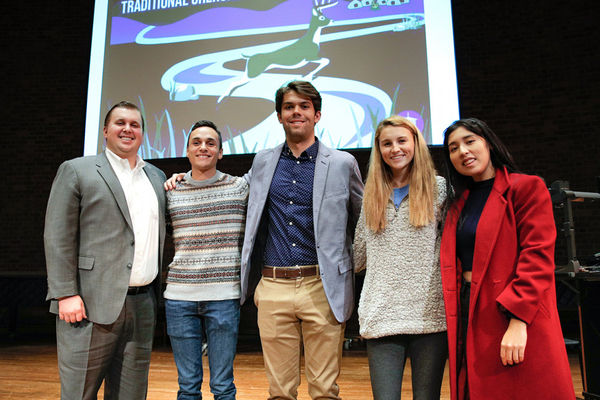Furman University’s commitment to creating a diverse, equitable, and inclusive environment is obvious. From programs dedicated to diversity and inclusion; CLP’s focused on conversations of equity, representation, and diversity; our Strategic Diversity Plan; and more - the University is working to improve diversity and inclusion for all members of the Furman community. The fruits of these labors may be seen in this year’s admissions data, as Furman has received a record number of applicants from underrepresented backgrounds for the incoming freshman class according to Allyson Brown, Associate Dean of Admissions. As our community continues to progress, it is important to look to the past to strive for a better future.
For Native American students like myself, a part of our history at Furman lies with Shelby Parker ‘14. Parker, a member of the Long Hair Clan of the Cherokee Tribe, was the only Native American student at Furman during her undergraduate studies.
Prior to enrollment, Parker was not aware that she would be the only Native American. Parker described the campus as “another realm” when she first arrived at Furman. While making new friends and acclimating to campus, Parker realized the unique nature of her own cultural experience. Despite her involvement at Furman, as both a Political Sciences major and player for Furman’s softball team, Furman was like a whole different world to Parker. Her undergraduate experiences, although sometimes isolating, inspired Parker to return to her tribe and serve. Parker now works at Cherokee Choices, where she helps young children dealing with diabetes, and she has aspirations to become a Tribal council member
In Nov. of 2019, the University held a ceremony during which President Elizabeth Davis officially acknowledged that Furman’s campus is on traditional Cherokee land. This land acknowledgment was especially important as it showed Furman respecting the Native Americans’ claims on tribal land, which is culturally significant for many Native people.
For this event, Parker returned to campus to deliver a heartfelt speech on what it meant to be a Native student on campus. In her speech, Parker urged current and potential Native students to be a trailblazer and to not be afraid to step into a new environment. She also asserted that as “oftentimes America forgets its own history,” the manner and way history is taught is important. Through acknowledgements of history, such as Furman’s land recognition, we will not repeat history but instead continue to progress.
Parker’s experience mirrors that of Dr. Margaret Oakes, a member of the Choctaw Nation of Oklahoma. Oakes obtained her PhD at the University of Stanford, which she describes as “a place full of cultural diversity.” Like Parker, Oakes remembers the slight shock of coming to Furman University and seeing little Native American representation in 1996. She was surprised and wished that Furman would prioritize outreach to the Cherokee tribe, to which Parker belongs. As our campus progresses, Oakes hopes to see an increase in understanding and appreciation of Native cultures on campus and beyond.
As a current Native American student, I can recognize the progress we have made as a University. Since Parker's attendance, diversity programs and organizations like the National American Indian Student Association (NAIA) have been welcome advancements, creating a campus community for students of underrepresented backgrounds. However, there is further to go in terms of representation and inclusivity, as there are still not many other Native American students at Furman. Building relationships with current professionals, like Parker and Oakes, can help Native students like myself envision a successful future at and beyond Furman.
Personally, hearing from Parker and Oakes was inspirational. As another Native American student, I hope to follow in Parker’s example and serve as a representative within the Furman community. I want to take Parker and Oakes’ suggestions to heart and increase our campus’ understanding of Native history and cultures in order to welcome future Native students. I can find joy in the friends I have made so far and the experiences I have had, while also appreciating my own cultural experience and not accepting where we currently stand as an institution. Furman still has room to grow, but steps to acknowledge our past, from the formal Land Acknowledgement to the Joseph Vaughn Plaza, are steps towards creating a more representative campus community.
